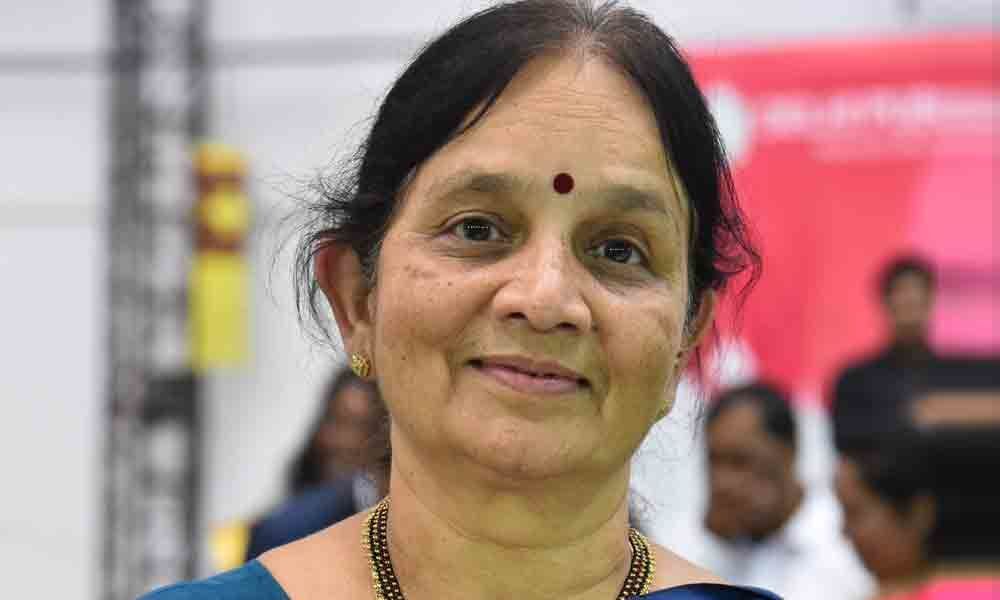Live
- Study Reveals Teabags Release Billions of Microplastics and Nanoplastics, Entering Your Body
- Kumbh Mela 2025: Essential Guide to Comfortable and Respectful Attire for Maha Kumbh
- Hyderabad Real Estate Faces Setback: Property Sales Drop 7% Year-on-Year in 2024
- Gnani’s Gen AI Solutions Revolutionising BFSI
- Trump's WHO threat sparks debate on the efficiency of global health governance
- ICC Champions Trophy 2025 Schedule: India vs Pakistan Match Set for February 23 in Dubai
- Champions Trophy 2025: Full Schedule, Match Dates, Venues, Timings, and Updates
- FRAI Urges Government to Provide Technology Platform for Kirana Stores to Stay Competitive
- Not just Gen Z, millennials too: Redditors discuss the wave of pet parenthood embraced by young Indians
- Innovation can expedite the journey to a Smoke-Free future- in focus at Technovation Abu Dhabi
Just In
"Benchmarking" is a word that is now everywhere in the world of not only education but in all other sectors. Easy access of knowledge of other countries around the globe and comparison of global standards has been the talk all over the world. Quality and meeting the 21st century skills in education is the demand of the society for sustainability.
Quality has got no universally accepted definition however The Oxford Advanced Learner's Dictionary, (2010), defines education the act or process of imparting or acquiring particular knowledge or skills, as for a profession and quality as referring to character with respect to fineness, or grade of excellence. The purpose of this paper is to examine the use of educational standards and benchmarks in our Indian educational context.
The transition in the teaching system with the introduction of technology offered in educational institutions is a clear indication that education has to be of certain quality to meet certain standards in the market. Policy makers, National curriculum frame work designers and educational leaders are finding the comparison of standards across the globe as one of the Education sector challenge.
According to the Study conducted by Canada, standards are defined as 'indicators of quality that specify expectations for student' (norm-referenced, criterion-referenced and self-referenced). England defined the curriculum for their subject and the accompanying performance standards. After consultation and revision these new curricula and standards were given legal status and implemented in phases (pg. 82, Ruddock, 1995).
Without doubt, the USA, with its decentralised approach to education, has a complex path to negotiate if it is to emerge with high quality performance 181 standards that meet educational and public criteria for effectiveness, utility, and credibility (pg. 209, Baker and Linn, 1995) These examples demonstrate that countries can have different views about what the term standard(s) mean, even when related specifically to student performance.
The purpose of our educational benchmarking is to raise the standards of education for all, to evaluate or check by comparison with a standard. Over time, best practices emerge based on the experience of what actions led to successful outcomes. Benchmark acts as the minimum threshold of performance (Salvia. Ysseldyke, & Bolt, 2013).Benchmarking is a smart discipline to assess one's own programme's processes against what has worked for others before.
The project of Benchmarking started with a pilot project conducted by the Organization for Economic Cooperation and Development in coordination with the programme for International student Assessment (PISA) and Jon Schnur's team at America Achieve. The study started with Benchmarking students' performance from all over the world by taking a similar test of the same-aged children.
Educational benchmarking is not to delineate the weak from the strong, inciting nation to compete against nation, Americans against Asians, and school against school; but it is all about improving public education. Benchmarking is not fomenting panics about performance in relation to overseas competitors. It is not about dividing schools, families and communities from each other to create easy pickings for the educational market.
With the current paradigm shifts made in CBSE curriculum and introduction of improving standards with several interventions; time is ripe for private and public schools to take cognizance of benchmarking.
India after nine years participated in this global performance assessment and very poorly fared in assessments. With the present trend of competitions, national as well as international and migration of population benchmarking has become a necessity.
In most cases the focus will be on the quality of observed standards. A wide variety of different benchmarks, in some cases, 'relative benchmark line' can be utilised to compare the relationship between two variables across a number of countries (or schools). Reference and guidelines can be used from International or National centre in education for bench marking (which over 20 years has benchmarked the education systems of more than 20 countries). PISA study and OECD tools can be used for us to set quality standards for sustainability. Time has come to make our schools also get bench marked specially the private and public schools to maintain their standards and withstand the global competitors.

© 2024 Hyderabad Media House Limited/The Hans India. All rights reserved. Powered by hocalwire.com









